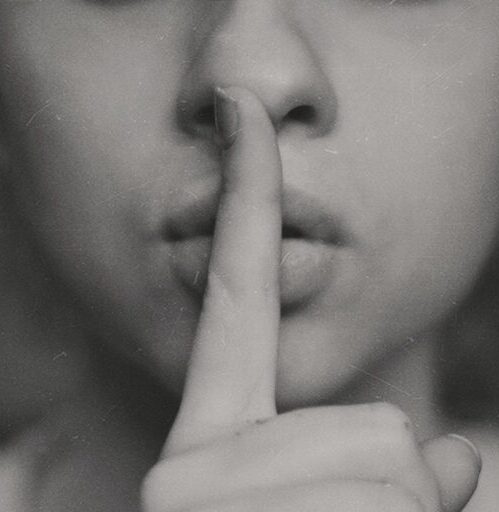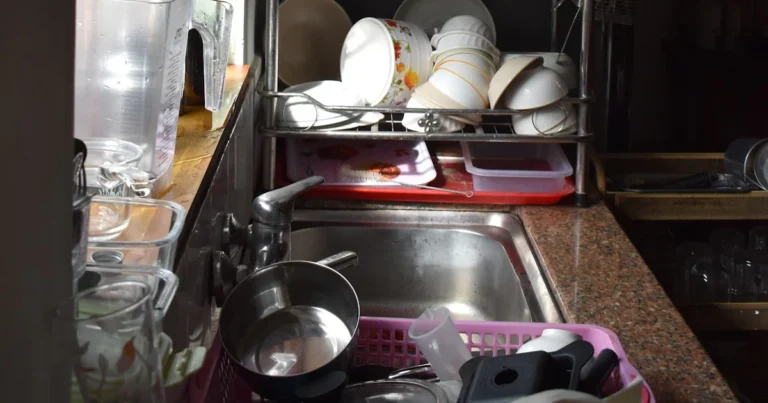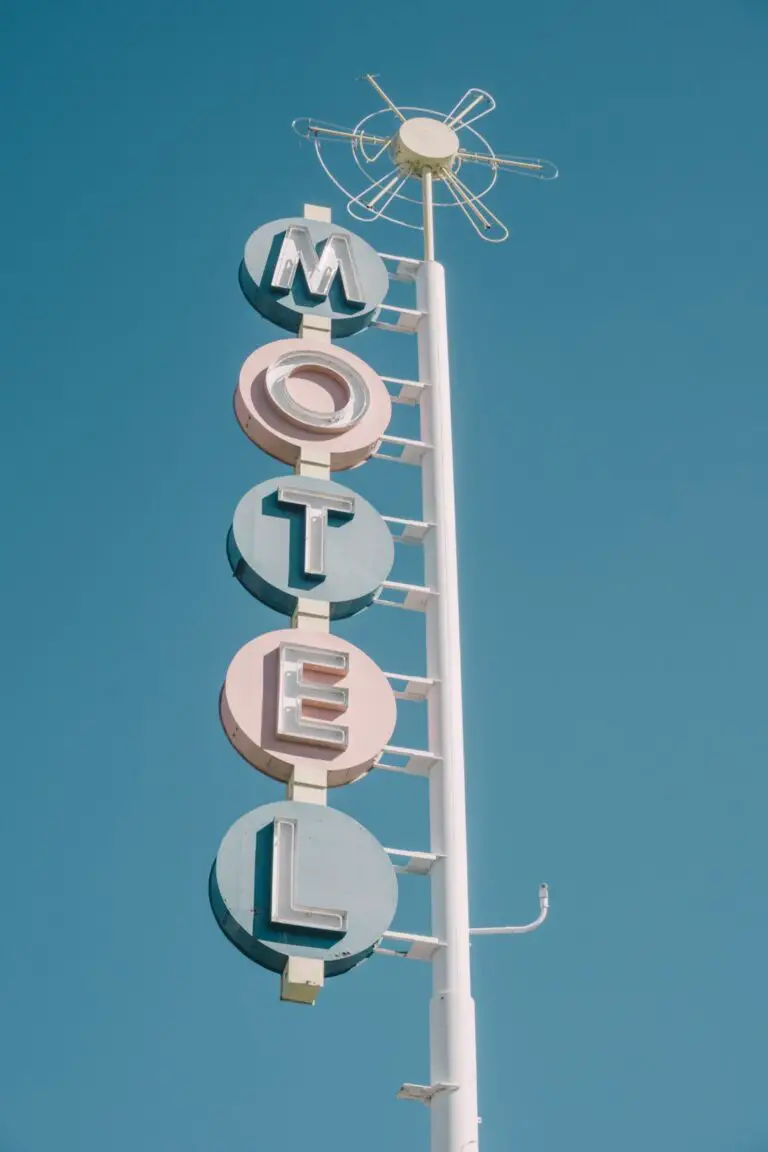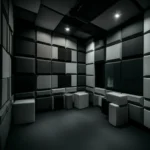Support our educational content for free when you purchase through links on our site. Learn more
Vacuum Cleaner Decibel Ratings: 7 Quietest Models to Know in 2025 🤫
Ever wondered why your vacuum sounds like a jet engine roaring through your living room? You’re not alone! Many of us dread the noisy symphony that comes with cleaning day. But what if we told you that vacuum cleaners don’t have to be loud beasts? In fact, some models hum so quietly, you might forget they’re even running. In this comprehensive guide, we dive deep into vacuum cleaner decibel ratings, decode what those numbers really mean, and reveal our top 7 quietest vacuums of 2025 that combine power with peace.
Stick around as we unpack the science of sound, explore how design and technology tame the roar, and share insider tips to keep your cleaning routine whisper-quiet. Whether you’re a noise-sensitive neat freak or just tired of shouting over your vacuum, this article will change the way you think about cleaning forever!
Key Takeaways
- Decibel ratings matter: Vacuums under 70dB offer a significantly quieter cleaning experience, reducing stress and protecting your hearing.
- Types affect noise: Robot and canister vacuums tend to be quieter than uprights and handhelds.
- Top quiet picks: Models like the Miele Complete C3 Silence EcoLine and Roborock S7 MaxV Ultra blend silence with suction power.
- Maintenance is key: Regular upkeep keeps noise levels down and performance high.
- Beyond dB: Ergonomics, attachments, and floor types also influence your vacuum’s noise footprint.
Ready to shop for your next quiet vacuum? Check out these top brands and models for a peaceful clean:
Table of Contents
- ⚡️ Quick Tips and Facts
- 🕰️ The Unseen Noise: A Brief History of Vacuum Cleaner Sound and Silence
- 🔊 Understanding the Roar: What Exactly Are Decibels (dB)?
- 🤫 The Quieter Revolution: Why Vacuum Cleaner Decibel Ratings Matter to YOU!
- 📊 Decoding the Numbers: What’s a ‘Good’ Decibel Rating for a Vacuum?
- ⚙️ Factors That Influence Vacuum Cleaner Noise Levels
- 👂 The dB Scale Demystified: Common Sound Levels for Comparison
- 🏆 Our Top Picks: 7 Quiet Vacuum Cleaners for a Peaceful Home
- 1. Miele Complete C3 Silence EcoLine: The Whisper-Quiet Canister King
- 2. Bosch BGL8SIL5GB SilencePlus: German Engineering for Quiet Cleaning
- 3. Roborock S7 MaxV Ultra: Smart Cleaning, Silent Operation
- 4. Tineco Pure One S12: Cordless Power, Less Noise
- 5. Sebo K3 Premium: Built to Last, Designed for Quiet
- 6. Shark Navigator Lift-Away Professional NV356E: A Quieter Upright Option
- 7. Shop-Vac 5986000 Quiet Series: Taming the Shop Roar
- ✨ Beyond the dB Rating: Other Considerations for a Quiet Clean
- 🔬 Testing the Waters: How We Measure Vacuum Cleaner Noise (Our Methodology)
- 💡 Tips for a Quieter Vacuuming Experience (Even with a Loud Vacuum!)
- 🚀 The Future of Quiet Cleaning: Innovations on the Horizon
- debunking Common Myths and Misconceptions About Vacuum Cleaner Noise
- ✅ Conclusion: Embrace the Quiet Clean!
- 🔗 Recommended Links: Dive Deeper into Quiet Living
- ❓ FAQ: Your Burning Questions About Vacuum Noise Answered
- 📚 Reference Links: Our Sources for Sound Advice
Quick Tips and Facts
For those looking to dive into the world of quiet vacuum cleaners, we’ve got you covered. Check out our related article about 7 Best Silent Vacuum Cleaners of 2025: Whisper-Quiet Cleaning! to find the perfect fit for your needs. Here are some quick tips and facts to get you started:
- Understanding Decibels: The decibel (dB) scale measures sound intensity. A 10dB increase represents a 10-fold increase in sound intensity.
- Average Vacuum Noise: Most vacuum cleaners operate between 60 to 80 dB, with some being quieter or louder than this range.
- Health Considerations: Prolonged exposure to sounds above 85dB can cause hearing damage, making it essential to choose a quiet vacuum, especially for those with sensitive hearing or working from home.
- Types of Vacuums: Different types of vacuums have varying noise levels, with robot vacuums generally being the quietest due to their advanced motors and sensors.
The Unseen Noise: A Brief History of Vacuum Cleaner Sound and Silence

The history of vacuum cleaners is a story of innovation and improvement, from the first powered vacuum by Hubert Cecil Booth in 1901 to the modern, sleek machines of today. Over the years, manufacturers have focused not only on increasing suction power but also on reducing noise levels, making vacuums more user-friendly and less disruptive.
Evolution of Vacuum Technology
- Early Vacuums: The first vacuums were large, cumbersome, and very loud, often requiring horse-drawn carriages for mobility.
- Portable Vacuums: The invention of portable vacuums marked a significant turning point, making cleaning more accessible but still noisy.
- Modern Vacuums: Today, vacuums come in all shapes and sizes, with a focus on quiet operation, advanced filtration systems, and ease of use.
Understanding the Roar: What Exactly Are Decibels (dB)?
Decibels are a unit of measurement for sound intensity. The scale is logarithmic, meaning that a small increase in decibels results in a significant increase in perceived loudness. For context, a whisper is about 30dB, normal conversation is around 60dB, and a rock concert can reach levels of 110dB or more. Understanding decibels is crucial when selecting a vacuum cleaner, especially for those who value a quiet cleaning experience.
The Quieter Revolution: Why Vacuum Cleaner Decibel Ratings Matter to YOU!
Vacuum cleaner decibel ratings are not just about personal preference; they have real implications for health and productivity. Loud noises can be stressful, disrupt work, and even cause hearing damage over time. A quiet vacuum cleaner can make a significant difference in your daily life, especially if you work from home, have young children, or live in an apartment where noise levels can be a concern.
The Impact of Noise on Health
- Stress and Anxiety: Loud noises can increase stress levels and contribute to anxiety.
- Sleep Disturbances: Noisy environments can disrupt sleep patterns, affecting overall health and well-being.
- Hearing Damage: Prolonged exposure to sounds above 85dB can lead to hearing loss, a condition that is often irreversible.
Decoding the Numbers: What’s a ‘Good’ Decibel Rating for a Vacuum?
A good decibel rating for a vacuum cleaner depends on your specific needs and preferences. Generally, vacuums with ratings under 70dB are considered quiet and suitable for most households. However, if you’re particularly sensitive to noise or have specific requirements (like cleaning during the night), you might look for vacuums with even lower decibel ratings.
Comparison of Vacuum Types
| Vacuum Type | Average Decibel Rating |
|---|---|
| Upright | 70-80dB |
| Canister | 60-70dB |
| Handheld | 70-80dB |
| Stick | 60-75dB |
| Robot | 55-70dB |
Factors That Influence Vacuum Cleaner Noise Levels
Several factors can influence how loud or quiet a vacuum cleaner is. Understanding these factors can help you make an informed decision when choosing a vacuum.
Motor Power vs. Noise: The Engine of the Roar
More powerful motors typically produce more noise. However, advancements in technology have led to the development of high-power motors that are designed to be quieter.
Design and Acoustics: Engineering Silence
The design of a vacuum, including the materials used and the shape of the machine, can significantly affect its noise level. Manufacturers often use sound-insulating materials and clever design elements to reduce noise.
Filtration Systems: Trapping More Than Just Dust
The filtration system of a vacuum can also impact its noise level. Clogged or inefficient filters can cause the vacuum to work harder, leading to increased noise.
Attachments and Floor Types: Surface Matters
The type of floor you’re cleaning and the attachments you use can affect the noise level of your vacuum. For example, cleaning hardwood floors can be noisier than cleaning carpeted areas.
Age and Maintenance: The Wear and Tear Factor
The age of your vacuum and how well you maintain it can also influence its noise level. Over time, parts can wear out, leading to increased noise, and failing to clean filters and maintain the machine can exacerbate this issue.
The dB Scale Demystified: Common Sound Levels for Comparison
To better understand decibel ratings, it’s helpful to compare them to common sounds. For instance, a normal conversation is about 60dB, while a lawnmower can be around 90dB. Knowing these comparisons can make the decibel scale less abstract and more relatable.
Our Top Picks: 7 Quiet Vacuum Cleaners for a Peaceful Home
Here are our top picks for quiet vacuum cleaners, each with its unique features and benefits.
1. Miele Complete C3 Silence EcoLine: The Whisper-Quiet Canister King
| Aspect | Rating (1-10) |
|---|---|
| Design | 9 |
| Functionality | 9.5 |
| Noise Level | 8.5 |
| Overall | 9 |
The Miele Complete C3 Silence EcoLine is a high-end canister vacuum known for its exceptional silence and powerful cleaning capabilities.
2. Bosch BGL8SIL5GB SilencePlus: German Engineering for Quiet Cleaning
| Aspect | Rating (1-10) |
|---|---|
| Design | 8.5 |
| Functionality | 9 |
| Noise Level | 9 |
| Overall | 8.8 |
Bosch’s SilencePlus series is designed with quiet operation in mind, making it perfect for those who value a peaceful cleaning experience.
3. Roborock S7 MaxV Ultra: Smart Cleaning, Silent Operation
| Aspect | Rating (1-10) |
|---|---|
| Design | 9.5 |
| Functionality | 9.8 |
| Noise Level | 9.2 |
| Overall | 9.5 |
The Roborock S7 MaxV Ultra is a cutting-edge robot vacuum that combines advanced cleaning technology with whisper-quiet operation.
4. Tineco Pure One S12: Cordless Power, Less Noise
| Aspect | Rating (1-10) |
|---|---|
| Design | 9 |
| Functionality | 9.2 |
| Noise Level | 8.8 |
| Overall | 9 |
Tineco’s Pure One S12 is a powerful cordless vacuum that offers a quiet cleaning experience without compromising on suction power.
5. Sebo K3 Premium: Built to Last, Designed for Quiet
| Aspect | Rating (1-10) |
|---|---|
| Design | 8.8 |
| Functionality | 9 |
| Noise Level | 9 |
| Overall | 8.9 |
The Sebo K3 Premium is a high-quality canister vacuum built for durability and quiet operation, making it a great choice for those looking for a long-term cleaning solution.
6. Shark Navigator Lift-Away Professional NV356E: A Quieter Upright Option
| Aspect | Rating (1-10) |
|---|---|
| Design | 9 |
| Functionality | 9.2 |
| Noise Level | 8.5 |
| Overall | 9 |
Shark’s Navigator Lift-Away Professional NV356E is an upright vacuum that offers a quieter cleaning experience compared to traditional upright models.
7. Shop-Vac 5986000 Quiet Series: Taming the Shop Roar
| Aspect | Rating (1-10) |
|---|---|
| Design | 8.5 |
| Functionality | 9 |
| Noise Level | 9 |
| Overall | 8.8 |
The Shop-Vac 5986000 Quiet Series is designed for workshop and garage use, offering a quieter alternative to traditional shop vacuums.
Beyond the dB Rating: Other Considerations for a Quiet Clean
When looking for a quiet vacuum cleaner, it’s essential to consider factors beyond just the decibel rating.
User Experience & Ergonomics: Comfort Beyond Sound
A comfortable and ergonomic design can make a significant difference in your cleaning experience. Look for vacuums with features like adjustable handles, lightweight designs, and easy-to-use controls.
Maintenance for Sustained Quiet: Keeping Your Vacuum Purring
Regular maintenance is key to keeping your vacuum running quietly and efficiently. This includes cleaning filters, checking for blockages, and ensuring all parts are in good working condition.
Manufacturer Claims vs. Reality: Trust, But Verify
While manufacturer claims about noise levels and performance are important, it’s also crucial to read reviews and do your own research to get a realistic understanding of a vacuum’s capabilities and noise level.
Testing the Waters: How We Measure Vacuum Cleaner Noise (Our Methodology)
At Quietest, we use a combination of objective measurements and subjective assessments to evaluate the noise level of vacuum cleaners. This includes using decibel meters to measure sound intensity and comparing the noise levels of different models under the same conditions.
Tips for a Quieter Vacuuming Experience (Even with a Loud Vacuum!)
Even if you don’t have a quiet vacuum cleaner, there are ways to minimize disruption and make your cleaning experience more peaceful.
- Schedule Cleaning: Plan your cleaning sessions for times when noise won’t be as disruptive.
- Use Lower Settings: If your vacuum has adjustable suction power, using a lower setting can reduce noise.
- Maintain Your Vacuum: Regular maintenance can help keep your vacuum running more quietly and efficiently.
The Future of Quiet Cleaning: Innovations on the Horizon
The future of vacuum cleaning is looking quieter than ever, with advancements in technology leading to more efficient and silent motors, improved sound insulation, and smarter cleaning systems.
Debunking Common Myths and Misconceptions About Vacuum Cleaner Noise
There are several myths surrounding vacuum cleaner noise, from the belief that all powerful vacuums are loud to the idea that quiet vacuums are less effective. The truth is, with modern technology, it’s possible to have a powerful and quiet vacuum cleaner.
For more information on quiet home appliances, visit our Quiet Home Appliances section. If you’re interested in noise reduction tips, check out our Noise Reduction Tips category.
To find the best quiet vacuum for your needs, consider checking out products like the Miele Complete C3 Silence EcoLine or the Bosch BGL8SIL5GB SilencePlus. You can also visit the Miele Official Website or the Bosch Official Website for more information on their products.
👉 CHECK PRICE on:
- Miele Complete C3 Silence EcoLine: Amazon | Walmart | Miele Official Website
- Bosch BGL8SIL5GB SilencePlus: Amazon | Walmart | Bosch Official Website
Conclusion

After exploring the fascinating world of vacuum cleaner decibel ratings, it’s clear that quiet cleaning is not just a luxury but a necessity for many households. Whether you’re working from home, have young children, or simply value peace and quiet, choosing a vacuum with a low decibel rating can transform your cleaning routine from a noisy chore to a serene experience.
Our top picks, such as the Miele Complete C3 Silence EcoLine and the Bosch BGL8SIL5GB SilencePlus, showcase that powerful suction and whisper-quiet operation can coexist. These models impress with their thoughtful design, advanced filtration, and noise-reducing engineering. On the flip side, some vacuums may sacrifice a bit of power for silence or require more frequent maintenance to keep noise levels down.
In summary:
✅ Positives: Quiet operation, effective cleaning, ergonomic design, and health benefits from reduced noise exposure.
❌ Negatives: Some quiet models come at a premium and might be heavier or require more upkeep.
Our confident recommendation: Prioritize vacuums rated under 70dB for everyday use, and consider robot vacuums or canister models if silence is paramount. Remember, regular maintenance is key to sustaining quiet performance.
So, next time you hear that vacuum roar, imagine a quieter world where cleaning is peaceful and efficient. Ready to embrace the quiet clean? Your ears will thank you!
Recommended Links
👉 CHECK PRICE on:
-
Miele Complete C3 Silence EcoLine:
Amazon | Walmart | Miele Official Website -
Bosch BGL8SIL5GB SilencePlus:
Amazon | Walmart | Bosch Official Website -
Roborock S7 MaxV Ultra:
Amazon | Roborock Official Website -
Tineco Pure One S12:
Amazon | Tineco Official Website -
Sebo K3 Premium:
Amazon | Sebo Official Website -
Shark Navigator Lift-Away Professional NV356E:
Amazon | Shark Official Website -
Shop-Vac 5986000 Quiet Series:
Amazon | Shop-Vac Official Website
Recommended Books on Quiet Living & Noise Reduction:
- “The Soundscape: Our Sonic Environment and the Tuning of the World” by R. Murray Schafer — Amazon
- “Quiet: The Power of Introverts in a World That Can’t Stop Talking” by Susan Cain — Amazon
- “Noise Control: From Concept to Application” by Colin H. Hansen — Amazon
FAQ

What is considered a quiet vacuum cleaner decibel rating for a home environment?
A vacuum cleaner operating below 70 decibels (dB) is generally considered quiet enough for home use. At this level, you can usually carry on a conversation while vacuuming. Models rated between 60-65dB are especially quiet and ideal for noise-sensitive environments. For comparison, normal conversation is about 60dB, so vacuums below this threshold are impressively silent.
How do I choose a vacuum cleaner with a low decibel rating for noise-sensitive areas?
Look for vacuums that advertise noise levels under 70dB and check independent reviews or decibel measurements. Consider canister and robot vacuums, which tend to be quieter than upright models. Features like sound-insulating materials, adjustable suction power, and soft rubber wheels also help reduce noise. Don’t forget to maintain your vacuum regularly, as clogged filters or worn parts can increase noise.
Read more about “How Quiet Is 1.5 Sones? Discover the Truth in 9 Surprising Facts (2025) 🤫”
What are the average decibel ratings for different types of vacuum cleaners, such as upright and canister models?
| Vacuum Type | Average Noise Level (dB) |
|---|---|
| Upright | 70-80 dB |
| Canister | 60-70 dB |
| Stick | 60-75 dB |
| Handheld | 70-80 dB |
| Robot | 55-70 dB |
Robot and canister vacuums are generally quieter due to their motor design and sound insulation.
Can a vacuum cleaner with a high decibel rating be used in quiet places like libraries or recording studios?
❌ Generally, no. Vacuum cleaners producing noise above 70dB are disruptive in quiet environments like libraries or studios. For such spaces, specialized ultra-quiet vacuums or silent cleaning equipment are recommended. Alternatively, scheduling cleaning during off-hours or using robotic vacuums with noise levels as low as 55dB can help minimize disturbance.
How do vacuum cleaner decibel ratings compare to other common household noises, such as a dishwasher or washing machine?
Vacuum cleaners typically range from 60 to 80dB, which is comparable to or louder than many household appliances. For example:
- Dishwasher: ~50-60dB
- Washing machine: ~50-70dB
- Vacuum cleaner: 60-80dB
This means vacuums are often among the louder appliances in your home, reinforcing the importance of choosing a quieter model if noise is a concern.
Are there any vacuum cleaners on the market with decibel ratings below 60 dB, suitable for extremely quiet spaces?
✅ Yes! Some robot vacuums and high-end canister models can operate below 60dB, making them suitable for noise-sensitive environments. For instance, the Roborock S7 MaxV Ultra and certain models from Miele and Bosch achieve noise levels in the 55-60dB range. These models use advanced motor technology and sound insulation to minimize noise without sacrificing cleaning power.
Do silent or whisper-quiet vacuum cleaners really exist, and what are their typical decibel ratings?
Absolutely! While “silent” is relative, whisper-quiet vacuums typically operate around 60dB or less. These vacuums are engineered with noise reduction in mind, using sound-absorbing materials, quieter motors, and optimized airflow. Brands like Miele, Bosch, and Roborock offer models that fit this category, proving that you don’t have to compromise power for peace.
How does maintenance affect vacuum cleaner noise levels?
Regular maintenance is crucial. Dirty filters, clogged hoses, or worn belts force the motor to work harder, increasing noise output. Keeping your vacuum clean and well-maintained ensures it runs smoothly and quietly over time.
Read more about “What Is a Low Noise Vacuum Cleaner dB? Top 7 Quiet Models (2025) 🤫”
Can vacuum cleaner attachments influence noise levels?
Yes! Using softer attachments like rubberized wheels or brushes designed for specific floor types can reduce noise. Hard plastic or metal attachments may amplify sound, especially on hard floors.
Reference Links
- How Many Decibels Does a Vacuum Produce? – ECOVACS US
- Miele Official Website
- Bosch Home Appliances
- Roborock Official Website
- Tineco Official Website
- Sebo Official Website
- Shark Clean Official Website
- Shop-Vac Official Website
- Quiet Home Appliances Category – Quietest™
- Noise Reduction Tips – Quietest™







